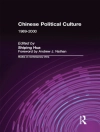This collection offers a timely reappraisal of the origins and nature of the first British empire, in response to the ‘cultural turn’ in historical scholarship and the ‘new imperial history’. It addresses topics that have been neglected in recent literature, providing a series of political and institutional perspective; at the same time it recognises the importance of developments across the empire, not least in terms of how they affected imperial ‘policy’ and its implementation. It analyses a range of contemporary debates and ideas – political and intellectual as well as religious and administrative – relating to political economy, legal geography and sovereignty, as well as the messy realities of the imperial project, including the costs and losses of empire, collectively and individually.
สารบัญ
1 Introduction – Jason Peacey
2 The pivot of empire: party politics, Spanish America and the Treaty of Utrecht (1713) – Steve Pincus
3 Party politics and empire in the early eighteenth century – J. H. Elliott
4 From anti-popery and anti-puritanism to orientalism – William J. Bulman
5 Protestantism and the politics of overseas expansion in later Stuart England – Gabriel Glickman
6 Reconciling empire: English political economy and the Spanish imperial model, 1660–90 – Leslie Theibert
7 Legal geography and colonial sovereignty: the making of early English ‘Bombay’ – Philip J. Stern
8 Compensating imperial loyalty, 1700–1800 – Julian Hoppit
9 Sheffield’s vision: the American Revolution and the 1783 partition of North America – Eliga H. Gould
10 Legal pluralism and Burke’s law of nations – Jennifer Pitts
Index
เกี่ยวกับผู้แต่ง
Jason Peacey is Professor of Early Modern British History at University College London












